What is hereditary angioedema (HAE)?
Hereditary angioedemaAlso known as HAE. Rare and potentially life-threatening genetic disease characterized by overproduction of bradykinin, which leads to recurring, severe and unpredictable swelling in various parts of the body. (HAE) is a rare but serious, genetic condition. HAE is associated with frequent episodes or attacks of painful swelling in various parts of the body. Stress or trauma may trigger these episodes; however, often there is no known trigger.
HAE is an autosomal dominant disease. This means a person needs only one copy of the altered gene to cause the disease. In some instances, a child inherits the altered gene from a parent who has HAE. In other instances, there is no family history. Instead, the condition occurs because of a spontaneous mutation (change) in a gene.
HAE affects about one in 50,000 people worldwide and an estimated 6,000 people in the U.S.
What are the symptoms associated with HAE?
Generally, HAE symptoms appear at an early age and increase in severity following adolescence.
These symptoms vary from person to person, but may include:
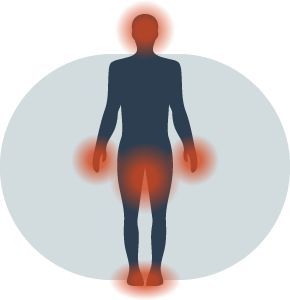
Swelling in extremities, which may include the hands, feet, face, genital area and buttocks
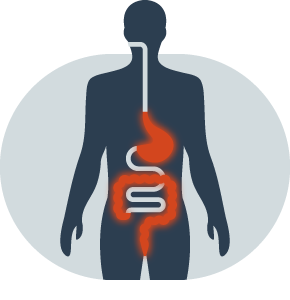
Stomach and gastrointestinal tract swelling, which may lead to stomach pain, nausea, vomiting and diarrhea
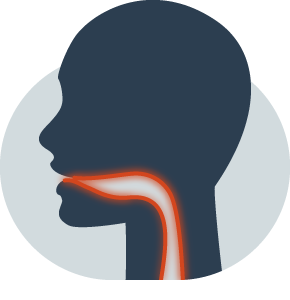
Throat swelling, which may cause hoarseness, difficultly in swallowing and breathing, or airway obstruction
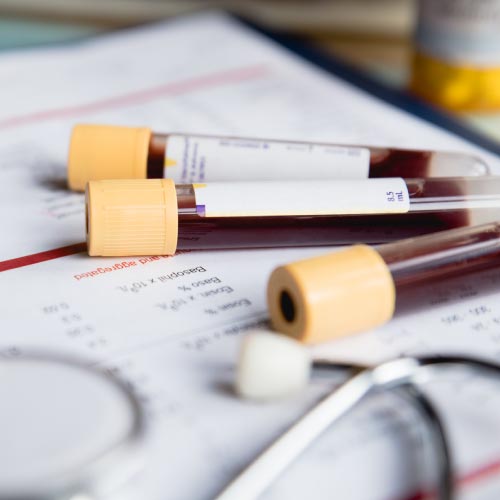
How is HAE diagnosed?
Because HAE is rare, obtaining an accurate diagnosis is often challenging. Occasionally, HAE is mistaken for allergies. However, allergy medications, such as antihistamines and steroid therapy, are ineffective. A proper diagnosis requires a physical exam, blood tests and medical history.

What are the treatment options for HAE?
Although there is no known cure for HAE, there are preventative and on-demand treatment options to help manage the condition. Long- and short-term prophylaxis is used to prevent swelling attacks. On-demand treatment is used to stop swelling progression and relieve symptoms, particularly important when there is throat swelling. There are a number of investigational therapies in development to offer patients potential new treatment options in the future.
Community Resources
Click the links below for more information about hereditary angioedema.
“Your Guide to Understanding Genetic Conditions: Hereditary Angioedema”
NIH, U.S. National Library of Medicine – Genetics Home Reference
“Hereditary Angioedema”
NIH, National Cancer for Advancing Translational Sciences – Genetic and Rare Disease Information Center
“What is HAE?”
US Hereditary Angioedema Association
“What is HAE?”
HAE International



